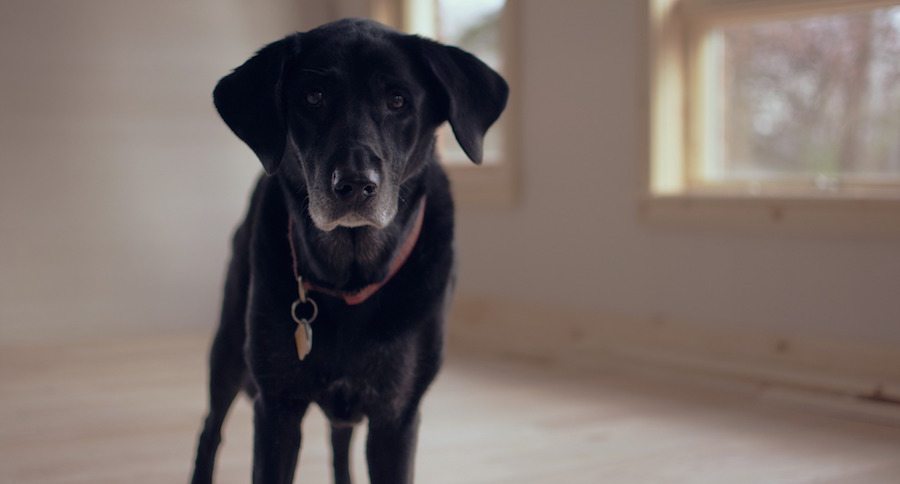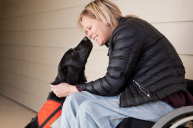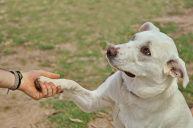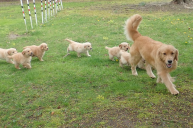You shouldn't let sleeping dogs lie.
At least when it comes to old dogs, because activities that utilize brainpower slow mental deterioration. According to a new study, one of the best ways to keep your old dog's brain sharp may be something that has been hailed as canine sudoku.
Because young dogs have to be integrated into their owner's daily lives, they are constantly learning, both at obedience school and in the privacy of the home. They learn basic commands like "sit," "stay," "come," and "heel," and more elaborate tricks like catching treats in midair or giving a high-five. They learn to participate in agility or herding or disc dog events. But as dogs age, their training gradually slows, and then quite often stops altogether.
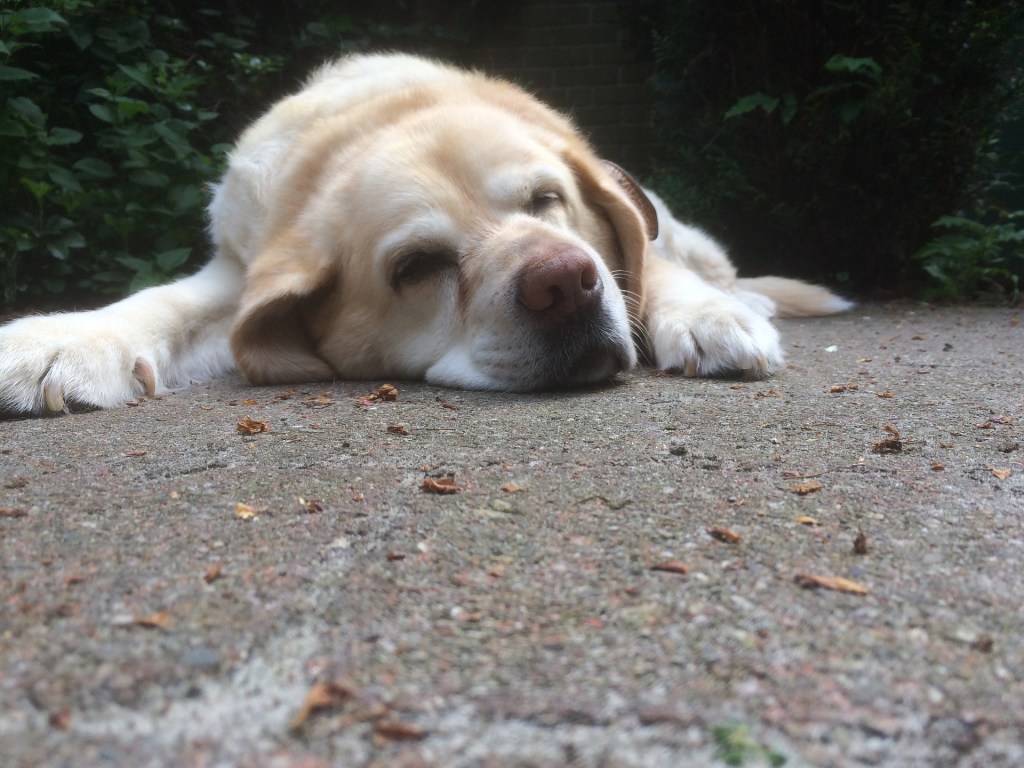
This happens for various reasons. As a general rule, old dogs are already perfectly integrated into our daily lives. Often owners forgive them any disobedience or stubbornness simply because they are old. And, additionally, many old dogs have physical problems that put limitations on the activities in which they can participate.
But this attitude is not good for the dogs.
A study by cognitive biologists from the Messerli Research Institute at Vetmeduni Vienna has examined this exact problem. As the study's first author, Lisa Wallis, said:
"...this restricts the opportunities to create positive mental experiences for the animals, which remain capable of learning even in old age. As is the case with people, dopamine production in dogs also falls in old age, leading to a decline in memory and motivational drive. But this natural mental deterioration can be countered with the specific training of cognitive skills."
But what is an owner to do if their old dog can no longer participate in most physical activities? Utilize computerized touchscreen games, of course.

In the training lab, old dogs were taught to complete simple mental tasks on a touchscreen computer, something even immobile dogs can do.
Though is did take some work to get the dogs comfortable with the touchscreen, with a reward system in place, it didn't take long for the dogs to become "avid gamers."
As senior author Ludwig Huber said:
"Touchscreen interaction is usually analysed in young dogs. But we could show that old dogs also respond positively to this cognitive training method. Above all, the prospect of a reward is an important factor to motivate the animals to do something new or challenging."
There are many benefits to this type of training.
Huber said:
"The positive feeling created by solving a mental challenge is comparable to the feeling that older people have when they learn something new, doing something they enjoy. Regular brain training shakes not only us, but also dogs out of their apathy in old age, increasing motivation and engagement and thus maximising learning opportunities."

It isn't clear whether old dogs forget things they used to know because of reduced powers of recollection or because of the lack of training in their old age, but one thing is certain: the answer to both is lifelong learning.
The team of researchers hopes the study will interest both software developers and dog owners as they look to prepare canine sudoku games for home use.
"Our scientific approach could result in an exciting citizen science project to increase the understanding of the importance of lifelong learning in animals," Wallis said.
Do you think your older dog could benefit from touchscreen games? Tell us below!
WATCH NOW: 5 Training Tips for a New Pup
